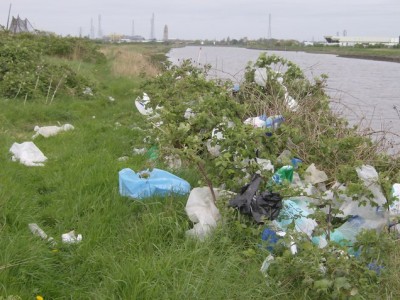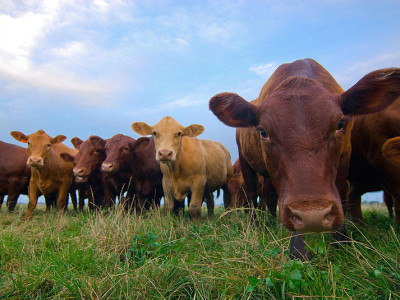Year: 2015
Econ101, Ideological Blinders, and the New Head of CBO
There are troubling indications that Keith Hall lets ideology blind him to basic economics.
Last week, in a post about the employment effect of regulations, I mentioned briefly that the new Director of the Congressional Budget Office, Keith Hall, had endorsed some questionable views on the subject. A reader pointed me toward an additional writing that has done a lot to escalate my concerns. There are disturbing signs about both Hall’s ideological bias …
Continue reading “Econ101, Ideological Blinders, and the New Head of CBO”
CONTINUE READINGRepublicans Hate Your Grandchildren, Part 2
Rick Scott Makes Sure Floridians Won’t Know About Climate Danger
It’s a common refrain around the web that Florida’s Republican Governor Rick Scott looks a lot like Lex Luthor, the arch-villain of Superman comics. The term fits, both aesthetically and substantively: in his previous career as CEO of Columbia/HCA, he oversaw what was at the time the largest Medicare fraud in history. But as the …
Continue reading “Republicans Hate Your Grandchildren, Part 2”
CONTINUE READINGOn China’s Remarkable Viral Air Pollution Video
Can 200 million viewers (and counting) be wrong?
Last Saturday evening, my research assistant (a wonderful JD student raised and educated in China) sent me a message: “This is a link to a documentary directed by Chai Jing (柴静). It has raised public concern about air pollution.” In perhaps the understatement of the year, she added: “Many Chinese people have been watching it.” …
Continue reading “On China’s Remarkable Viral Air Pollution Video”
CONTINUE READINGAccounting For Job Loss
The consequences of doing so may not be what you’d expect.
The Republican’s choice for head of the CBO, Keith Hall, spent some time at a libertarian think tank reportedly funded by the Koch brothers, where he wrote about the effect of regulation on employment. Hall argued that regulations cause unemployment (include indirect effects because of price changes), and that the costs of unemployment should be included …
Continue reading “Accounting For Job Loss”
CONTINUE READINGReferendum Politics: California’s Pioneering Plastic Bag Ban on Hold
Out-of-State Bag Manufacturers Succeed in Qualifying Referendum Measure for 2016 Ballot
California’s recently-legislated ban on disposable plastic bans–the first in the nation–will not take effect on July 1, 2015 as the new law mandates. That’s because industry opponents of the legislation have qualified for the November 2016 election a referendum measure that seeks to repeal the new law. Last fall I wrote on this site about …
Continue reading “Referendum Politics: California’s Pioneering Plastic Bag Ban on Hold”
CONTINUE READINGLet’s Strengthen California’s Climate Goals
Tackling the post-2020 era
A few days ago, I wrote a post taking issue with the idea that AB 32’s emissions limit expires in 2020. Here’s a follow-up. Even with AB 32’s influence beyond 2020, California is right to want to do more. Through the leadership of Senators De Leon, Pavley, and others in the legislature, there’s a package …
Continue reading “Let’s Strengthen California’s Climate Goals”
CONTINUE READINGAccelerating Cost-Effective Green Stormwater Infrastructure: Learning from Local Implementation
A new Berkeley Law report
California decision makers focused on responding to the current drought might question whether stormwater deserves a slice of their attention right now. Although it might be tempting to relegate stormwater planning, management decisions, and infrastructure improvements to a back burner until drought concerns cool off, doing so would be counterproductive. Below, I explain why stormwater management is relevant …
CONTINUE READINGPrioritizing Livestock Emissions
How do you solve a problem like manure?
Under AB 32, California’s climate change law, “greenhouse gas” is defined to include carbon dioxide, methane, nitrous oxide, and some fluorinated gases. But the bulk of the state’s efforts to date have focused primarily on the first. CO2 is undeniably the primary offender: It accounts for about three quarters of annual global emissions, and is …
Continue reading “Prioritizing Livestock Emissions”
CONTINUE READINGThe Climate-Nutrition Nexus
The advisory panel on nutrition ruffled some congressional feathers by taking environmental impacts into account. The panel’s report concludes that “a dietary pattern that is higher in plant-based foods, such as vegetables, fruits, whole grains, legumes, nuts, and seeds, and lower in animal-based foods is more health promoting and is associated with lesser environmental impact than is …
Continue reading “The Climate-Nutrition Nexus”
CONTINUE READING‘The Centers Cannot Hold’ . . . At Least, Not in North Carolina
Attack on academic freedom? Or misunderstood management effort?
Both the NY Times and the Washington Post have reported on a recommendation that the North Carolina Board of Governors close several university centers. [Update: the recommendations were adopted by the Board a week later.] There are strong allegations that this is part of a conservative attack on the university system. There are certainly grounds to suspect …
Continue reading “‘The Centers Cannot Hold’ . . . At Least, Not in North Carolina”
CONTINUE READING











